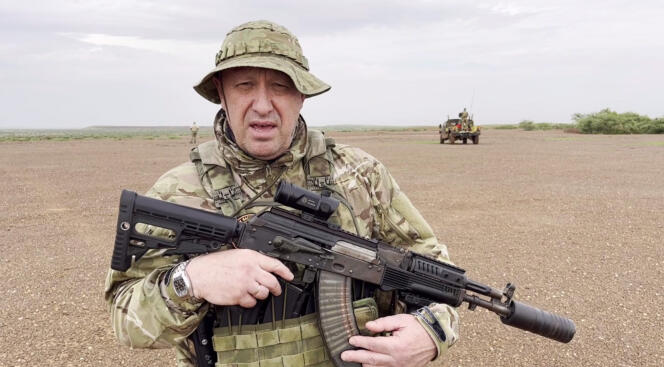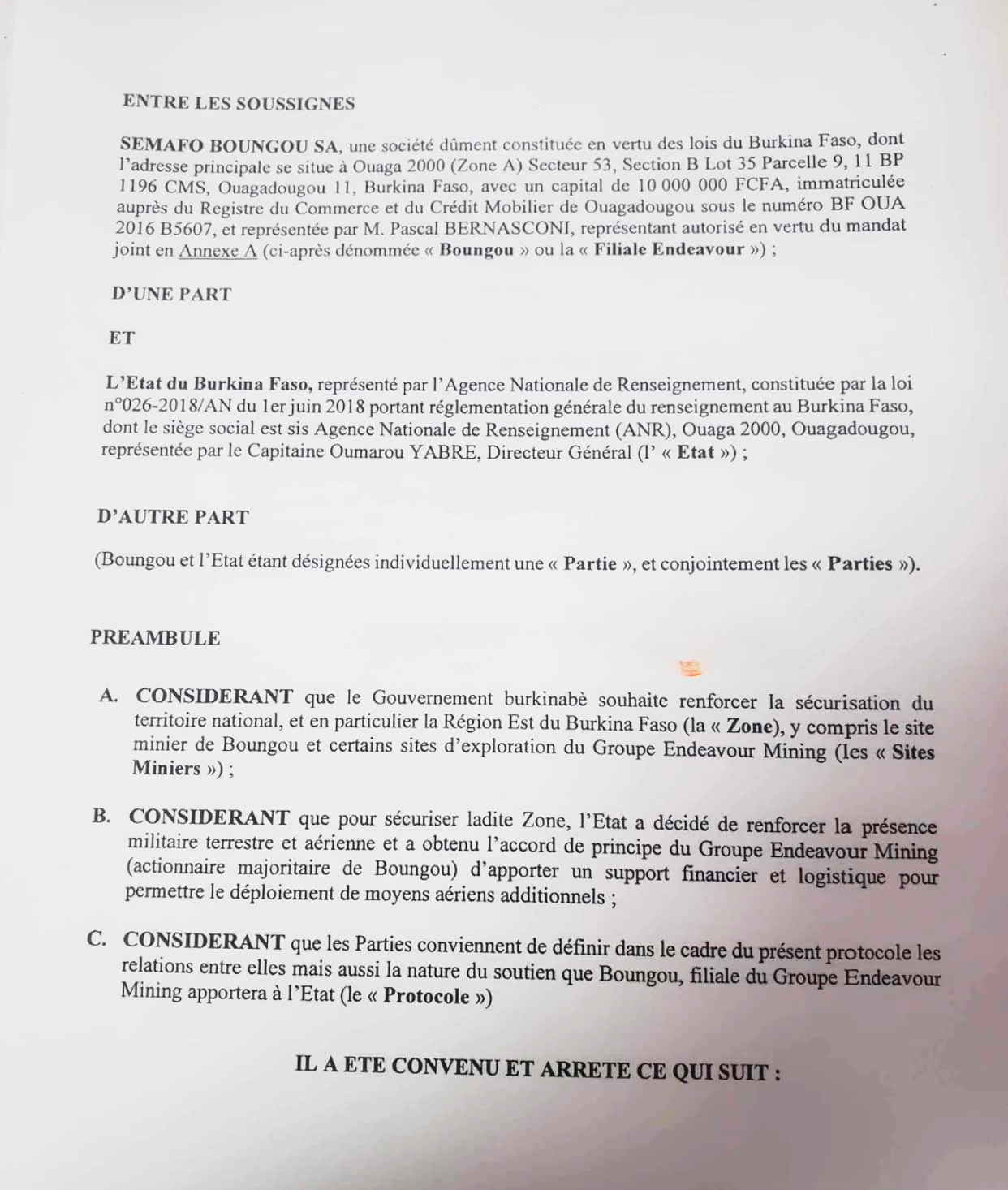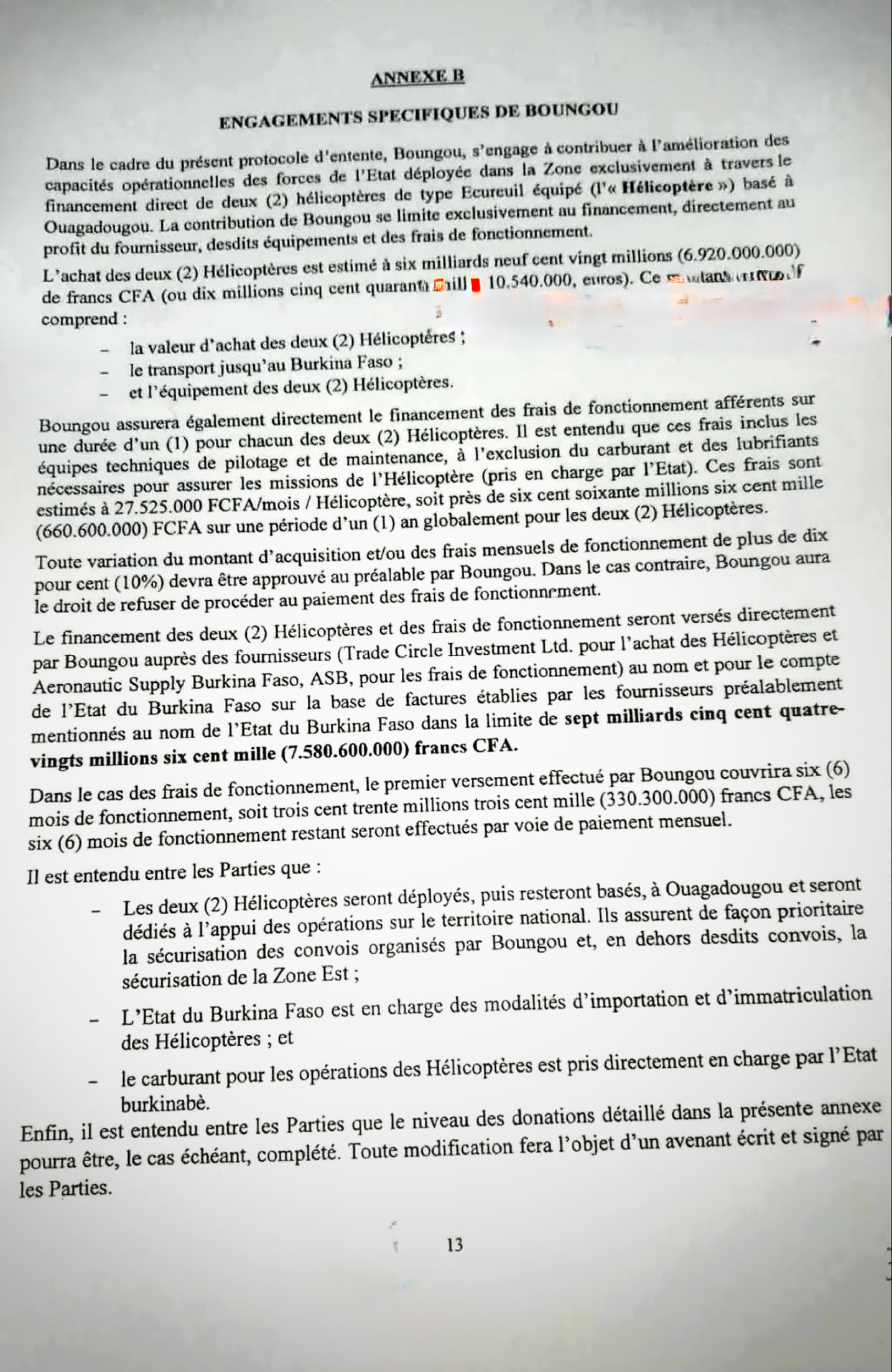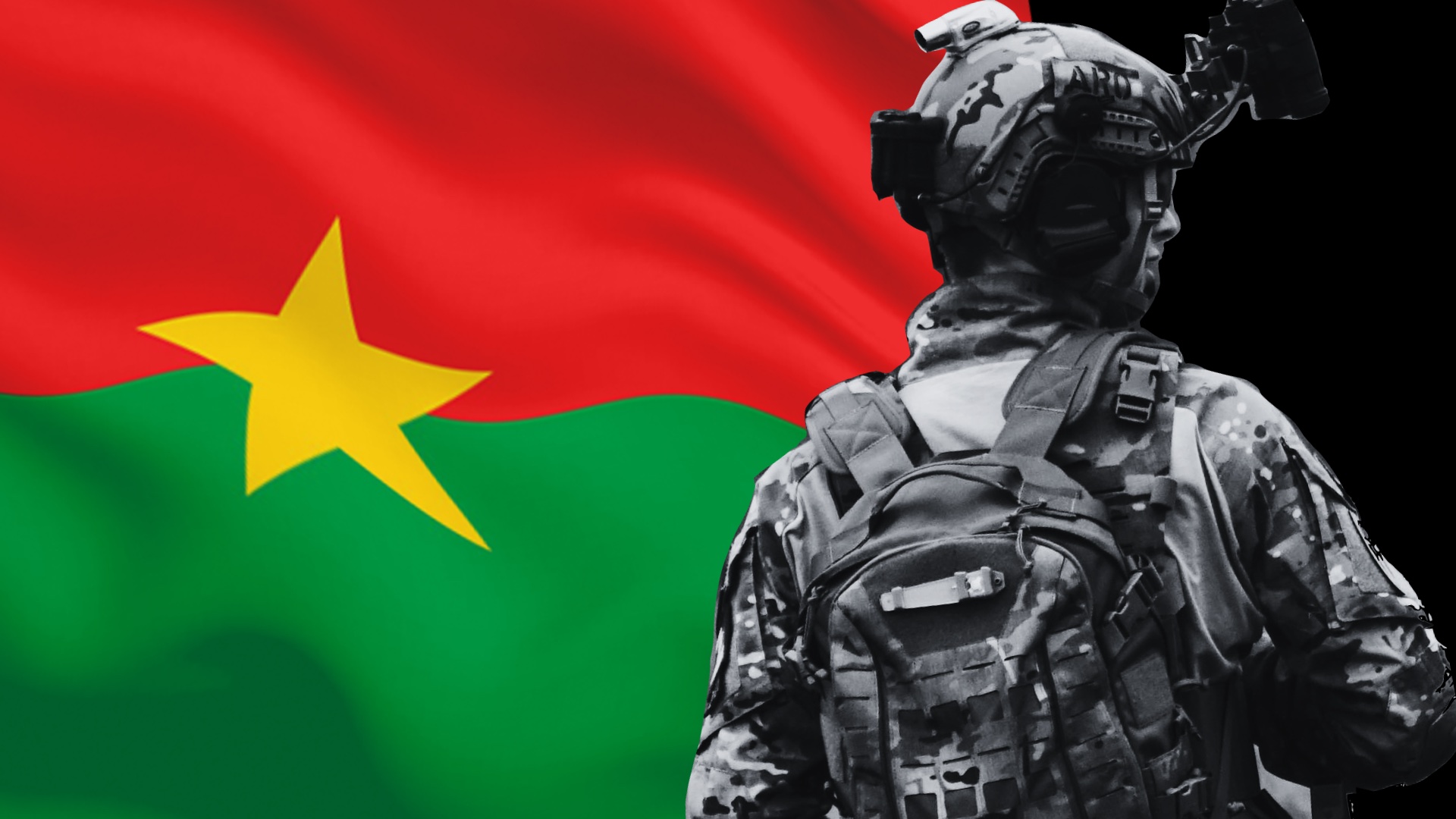Read the French version here.
Brute force in the countryside and tyranny in the cities
“We are not here for power. We have a twelve-month program in which we will resolve small logistical problems while respecting human values.” After Captain Ibrahim Traoré announced with these words his takeover of power in Ouagadougou on September 30, 2022, he was immediately congratulated by Yevgeny Prigozhin (then still alive), founder of the Russian paramilitary group Wagner, since re-baptised the Africa Corps. Prigozhin called Traoré “a truly worthy and courageous son of his homeland.”
Prigozhin, who was then still close to Russian President Vladimir Putin, also declared on the occasion that Traoré's reign would be a very welcome change for the country because “the people of Burkina Faso were previously under the yoke of the colonialists, who stole from the people, supported the bandits, and caused a lot of harm to the local population.”
Wagner's leader provided no evidence to support his accusation that the former French “colonialists” supported the “bandits” (the armed gangs and jihadist terrorists who have plagued the country and region for decades), but his statement unequivocally positioned the then-still private Russian military brigade as the answer to the problem.
Anticolonial partners
Prigozhin called the new leader a “brave son of his homeland.”
Pro-Russian social media campaigns to pave the way for Traoré's new junta had begun months before the captain came to power. During the nine months between January and September 2022, hundreds of messages targeted then-leader, military officer Paul-Henri Damiba, calling him and his junta “craven” allies of France and accusing these leaders of “lacking interest in exploring partnerships with anti-colonial allies like Russia.” The campaigns had simultaneously touted Wagner’s supposedly successful role in combatting banditry and terrorism in Mali as a reason for Russia’s ostensibly necessary involvement in Burkina Faso.
In December 2023, before the Transitional Legislative Assembly, new Prime Minister Appolinaire Kyelem de Tambela then announced Russia would provide aid for a reorganisation of the Burkinabè army through the creation of new rapid intervention battalions and new mobile intervention groups. China and Turkey would also help, he said. “Faced with the blockade imposed by certain Western states (sanctions after military coups), diversification was not only appropriate but necessary.”
Civilians were recruited to fight terrorists
As soon as the junta took power, a plan to recruit 50,000 civilian “Volunteers for the Defense of the Fatherland” was already in place. Initiated a day after the coup, civilians were urged to join the brigades to fight the terrorists.

Machete threats
As the fight against terrorism intensified, respect for human values did not last long. Communiqué No. 3 issued by from the junta on September 30, 2022 — the same day of the coup — had already declared that “all political activity is suspended”, as well as “any activity of civil society organisations.” Civil society organisations had started to report increasing numbers of arrests, detentions, and kidnappings of activists.
A year later, when unions and other civil society organisations wanted to commemorate the anniversary of the popular uprising against bad governance and corruption of October 2014 — which led to the fall of autocrat Blaise Compaoré — supporters of the junta immediately came out to publicly threaten the initiators. Pictures of machetes were displayed on social networks, together with the text: “We are firmly waiting for these people”.
The new government did not condemn the threats. The commemoration did not take place.
A nuclear power plant and 25,000 tonnes of wheat
In the same month of October 2023, the new junta signed an agreement with Russia for the construction of a nuclear power plant to “cover the energy needs of the population”, less than a quarter of which has access to electricity. The contract would be followed by the donation of “25,000 tons of free wheat, a personal security detachment for the head of the junta, Captain Ibrahim Traoré, and 100 paramilitary fighters” in November 2023.
Simultaneously, in an unprecedented way of responding to criticism, the junta issued conscription notices to at least twelve journalists, civil society activists, members of Balai Citoyen (the civil society organisation that had led the popular uprising which led to the fall of Blaise Compaoré in 2014), and human rights defenders, ordering them to “join the volunteers” and go to the front to fight jihadist militants.
While some of them went into exile, or into hiding, others have since been kidnapped and sent to the front. “Many of them still have not returned. Their families have not heard from them for months,” said a human rights activist in May 2024, speaking on condition of anonymity.
At a flag-raising ceremony the same month, on May 6, 2024, in the Prime Ministry’s courtyard, Prime Minister Kyelem de Tambela publicly declared that “human rights are an imperialist instrument.”
According to the Prime Minister “human rights are an imperialist instrument”
Five more years
On May 25, 2024, twenty months after Captain Traoré declared that he would resolve small logistical problems in less than 12 months and that he was not interested in power, the military government of Burkina Faso after a set of “national meetings” extended its reign for another five years. According to the state broadcaster, this extension aims to “guarantee a little more security”, even if “everything is already almost fine.” The state news service routinely reports that terrorists are “locked down and successfully dealt with”, and that every day, “the army is becoming more powerful.” In the presentations of an almost idyllic version of the situation at the front, there are many victories, never setbacks.
There are more and more Russians on the military base dedicated to them, northeast of the capital, in the commune of Loumbila. “It is difficult for me to give an exact figure but there are no less than 400 to 500 men on this Loumbila base,” confides a military source. A resident near the RN 3 road which connects Loumbila to the capital Ouagadougou says that “military vehicles, which come and go from the military base, with white men in military uniform on board, have been numerous lately.”
Massacres
In April, a Human Rights Watch report found that soldiers had rounded up and killed a total of 223 people, including 56 children, in a number of northern villages. Government spokesperson Jean Emmanuel Ouedraogo had denied the report, calling it baseless, but a witness from the region confirms it by telephone. “This was in response to a terrorist attack which had targeted the army and voluntary brigades in the area. They thought the attackers had retreated towards these villages, so the soldiers and brigades attacked the villages in return. Women, children, young people and the elderly were massacred without warning. The slogan was ‘those who harbour and cover terrorists are also terrorists and must be treated as such’.”
“Today, it is impossible for me to visit my native village”
Augustin Loada, associate professor of law at the University of Ouagadougou, would like to believe this all-out war is making the country safer, but fears being “contradicted by those on the ground.” “In 2020, I could still visit my native village in Koulpelogo province, but today it is almost impossible to get there safely,” he says. Other research on villages “under blockade” in Burkina Faso supports this.
The Institute for Economics and Peace, which produces the international index of terrorism in the world each year, reports that Burkina Faso was the country most affected by terrorism in the world in 2023, with a score of 8.57, ahead of Israel (8.14), Mali (8.00), and Pakistan (7.92).
More beggars on the streets
“The number of women and children begging at the intersection of avenues Pascal Zagré and France-Afrique, where I pass frequently, has practically tripled in the last two years,” says the head of an economic research firm living in the capital. “Today we are faced with an extremely high cost of living, flight of capital, emigration of businessmen, withdrawal of investors, a liquidity problem in the banks, difficulties in paying salaries, an energy crisis, and rising unemployment.” The same source mentions increasing violent crime. “An armed robbery in broad daylight of a money transport vehicle, on 20 May, left two people dead and a large sum of money was taken by the bandits.”
The delinquents are swarming
In another recent case, a money transfer point was robbed late in the afternoon. “It wasn’t far from my house,” says a young resident of the Toîbin district. “Today, in Ouagadougou, after 5 PM, it is becoming more and more difficult to find a money transfer point that is still open. Everyone starts closing pretty early, for fear of getting robbed.”
When asking around for people’s views at the city's markets, some street traders say they still believe that the new anti-colonial partnership will ultimately help solve poverty and crime. “The solution to this crisis lies in the partnership with Russia. Past regimes have wasted a lot of time relying on France. If we had been on Russia’s side from the beginning, terrorism in Burkina Faso would have been suppressed a long time ago,” says Alassane Kiemdé, a clothing seller. Other traders believe that Russia, unlike the West, at least shares certain “African cultural values”, particularly regarding homosexuality.
Growing debt
But middle-class businessmen feel the weaknesses of a state collapsing under the war effort. “Never in the memory of Burkinabè businessmen have we experienced such economic gloom,” declares a state supplier, visibly distraught. “We are on the verge of asphyxiation.” The state, according to his and other's complaints, has not paid its bills for some time, largely because a heavy debt weighs on the state budget.
In its Public Debt Statistical Bulletin, published in March 2024, the Directorate-General of the Treasury and Public Accounting indicates that the total amount of Burkina Faso’s public debt was close to US$14 billion at the end of December 2023, compared to US$12 billion at the end of December 2022.
Several civil servants interviewed said that even their salaries were often late or sometimes only formally appeared in their bank accounts. “We can't get the money when it’s supposed to be there, we have to wait for days,” one of them complained.
The junta accused tax officials of “sabotage”
However, like many other subjects, the state’s financial difficulties are not the subject of transparent public debate in the country. Instead, tax officials were accused of “sabotaging” revenue collection. In March 2024, a Facebook page titled “Anonymous Elite Alpha” publicly accused union representatives Zakaria Bayire and Yacouba Kientega, respectively secretary-general of the National Union of Tax and Real Estate Agents (SNAID) and secretary-general of the SNAID section of Kadiogo (…), of “sabotage” and an “economic and financial coup d’état”. “We swear that the day there is a delay in the payment of salaries due to lower tax revenues, we will burn people alive in the streets,” the account read, adding: “We already know Kientega’s and Bayire’s home addresses.” It displayed the addresses and contact details of the two.
Junta leader Captain Ibrahim Traoré himself publicly echoed the accusation on March 8 while visiting Tenkodogo, in the east of the country. These officials were using “the excuse of no Internet connection” to avoid collecting revenue, he said in his speech there, warning them that “they should stop.” A video of these statements circulating on social media shows participants, including tax officials, listening with fear on their faces.
The tax officials’ union would a little later vehemently deny the accusation, saying, that “it isn’t us who cause the bad internet connection.”
Nouveau riche
Some shortages in the country’s finances might rather be caused by opaque state purchases which have recently been on the increase. The aforementioned economic expert observes that “a new class of nouveau riche is being created through public procurement” and that this is happening because, nowadays, “an administrative director can decide alone to award a contract to whomever he wants. This allows friends to get rich as quickly as possible.”
“An administrator can award a contract to anyone he wants”
One of the recent transactions that has come to public attention in this regard is the purchase of 30 pick-up vehicles for the Ministry of Defense for an amount of over US$1,3 million. The contract (in the possession of ZAM) was awarded in October 2023 to a company called Burkina Mines Equipment and services, whose CEO is Zakariaou Boureima Maîga, a nephew of pro-junta activist Ibrahim Maîga, who lives in the United States and is said to be very close to Captain Traoré. The company's failure to meet the agreed delivery deadline of three months has since given rise to speculation of not having the competence required for such a contract. When contacted, CEO Zakariaou Maiga refused to comment on the subject, arguing that the matter was before the courts.
In April 2023, the number two of the junta, Captain Oumarou Yabré, also director general of the ANR (National Intelligence Agency), signed a security contract worth US$11 million with the mining company Semafo Boungou for the purchase of military equipment, intended “to support the army in securing the intervention zone” of the said company. The written contract, posted by an activist on social networks has not been denied. The ruling junta has also not commented on questions raised, also on social media, as to why the ANR boss would sign such a contract instead of the appropriate defence ministry.


1) Page identifying the parties of the contract between Semafo Boungou and the state of Burkina Faso.
2) Appendix of the contract between Semafo and the state of Burkina Faso: the objects and price of the deal.
Gold fraud
Suspicions of illicit enrichment also surround an agreement concluded in December 2023 between the junta and the Canadian mining company Iamgold Essakane. The settlement is part of a gold fraud case in which the company, as per the charges in court, attempted to smuggle gold hidden in coal into Canada in 2018. While the case was still before the courts, in 2023 the junta suddenly settled with the company for a sum of around US$16 million and the confiscation of the merchandise.
This is much less than the company would likely have been held liable for if the trial had run its course.
A new airline was created by a friend of the regime
More recently, the closure of the national airline Air Burkina, which declared bankruptcy in a press release on May 24, 2024, seems to have created space for a completely new company, appearing out of nowhere. Kangala Air Express is managed by Ali Konaté, who is the head of the brotherhood of “dozos” — traditional hunters in the country (1). This brotherhood of hunters is one of the main suppliers of the Volunteers for the Defense of the Fatherland.
Just like some contracts are awarded without any checks and balances, appointments of new civil servants to high positions in the state are increasingly made without a call for applications, and often directly by the junta. Three state agencies (the Central Purchase of Essential and Generic Medicines (CAMEG), the Bureau of Mines and Geology, and the Infrastructure Works Agency of Burkina Faso) now have heads whose skills have not been tested through a transparent application process.
In a declaration published on May 1, 2024, the joint workers’ unions of Burkina Faso deplored both “an abuse in the award of contracts” and “appointments which ignore the principle of calling for applications for directors-general and other presidents of institutions.”
Muzzled voices
The junta succeeded in establishing terror everywhere
In June 2024, it is increasingly difficult to find people who dare to speak out about the army, the junta, the economy, security, or any other problem in the country, even anonymously. Critical media practically no longer exist; the CENOZO network of investigative journalists does not produce any reports on major issues in the country where it is based. “Controversial subjects are no longer covered in CENOZO reports,” confides a member of the organisation. On social media, critical accounts are buried under millions of trolls and quickly lose their appeal.
“The military junta has succeeded in establishing terror everywhere,” notes a journalist who has been forced into exile. Even NGOs no longer make statements. “I can’t talk to you. You can use our report but don’t mention us,” explains the communications manager of an NGO before quickly hanging up his phone. A human rights activist who, after long negotiations, finally agrees to speak anonymously, simply declares: “Human rights have never been so violated in this country. It is now too risky to even talk about such rights.”
To further stifle public debate, including publications on social networks by exiled Burkinabè activists, thousands of troll accounts attack and defame those who still dare to criticise. One of these accounts, signed by a certain Alpha Diallo who affirmed in August 2023 that “Burkinabè politicians received financial support from France to destabilise the junta”, was even, albeit briefly, republished on the Facebook page of the Presidency. This has led many people to believe that the government is connected to these campaigns. More recently, social media posts like “Anonymous Elite Alpha” have offered cash rewards for the murders of some identified critics and activists.
The extent of the unrest
“France has never really introspected on its model of half-hearted decolonisation,” says a former politician. “It has also not fully understood the revolt that has been brewing for a long time in its former colonies because of its persistent domination since independence.” In his eyes, Russia knew how to monitor the scale of the unrest that was brewing and cleverly took advantage of it.
“We cannot leave one master for another”
For Augustin Loada, both Russians and Westerners are seeking to promote their interests in the Sahel. For Russians, questions of democracy, human rights, and good governance are internal issues that do not concern them. This gives them an advantage with military juntas hostile to democracy. “So we are now in a situation where calling oneself anti-imperialist, that is to say anti-Western, is a wonderful thing,” he explains with a slightly amused air.
A student at the same university is not falling for that, however. “We cannot leave one master for another and talk about sovereignty. No great power has friends. They all have interests to defend.” The student hopes that, before long, the current leaders will give way to “a more technocratic prime minister who brings the people together.”
Loada, for his part, adds that the country will not emerge from the current serious crisis without frank and sincere dialogue between all. “We cannot allow anyone with a divergent view to be considered a ‘stateless person’ to be destroyed. Brutal force in the countryside and tyranny in the cities will solve nothing.”
(1) In the villages, especially in the west of Burkina Faso, the dozos are reputed to have mystical powers allowing them to hunt wild animals in the bush.
Requests for comment were sent to the military government but no responses were received.
*The author’s name has been changed for safety reasons
Read all the investigative articles in this series:
Hôtel Kremlin | Niger (English)
Hôtel Kremlin | Niger (French)
Hôtel Kremlin | Mali (English)
Hôtel Kremlin | Burkina Faso (French)
Hôtel Kremlin | Niger, Mali, Burkina Faso (English)
Call to Action
ZAM believes that knowledge should be shared globally. Only by bringing multiple perspectives on a story is it possible to make accurate and informed decisions.
And that’s why we don’t have a paywall in place on our site. But we can’t do this without your valuable financial support. Donate to ZAM today and keep our platform free for all. Donate here.


